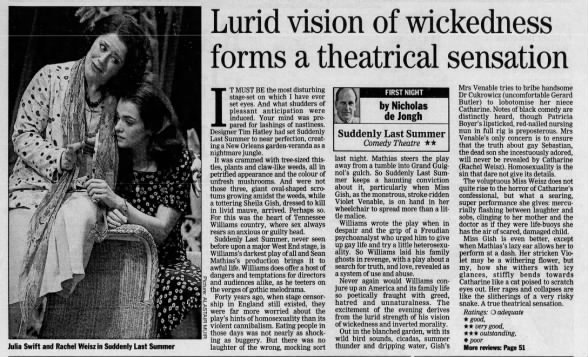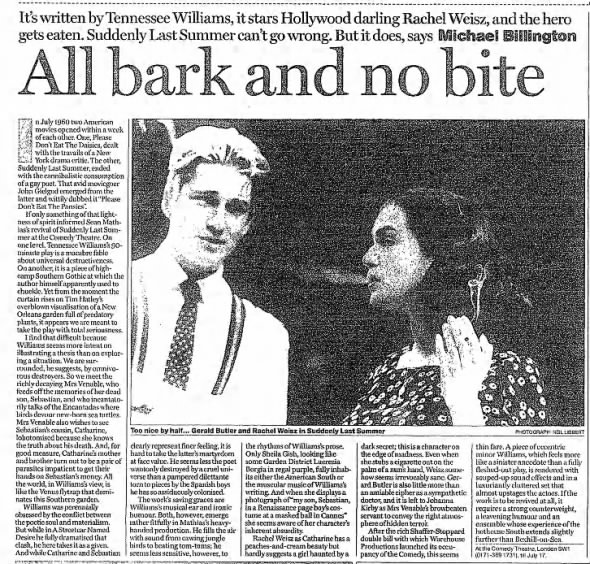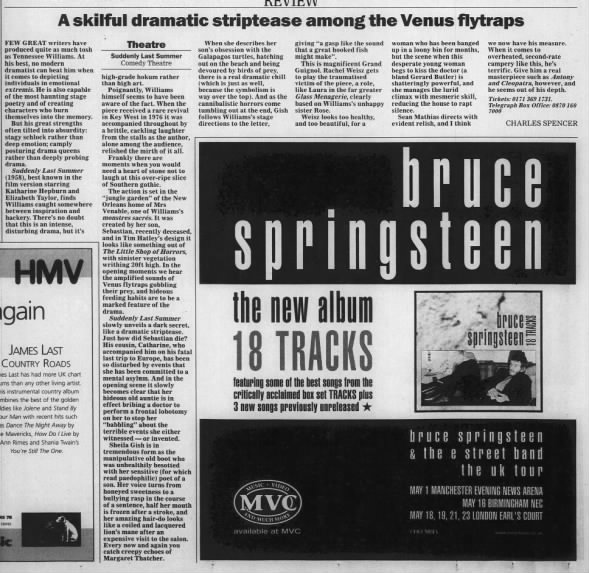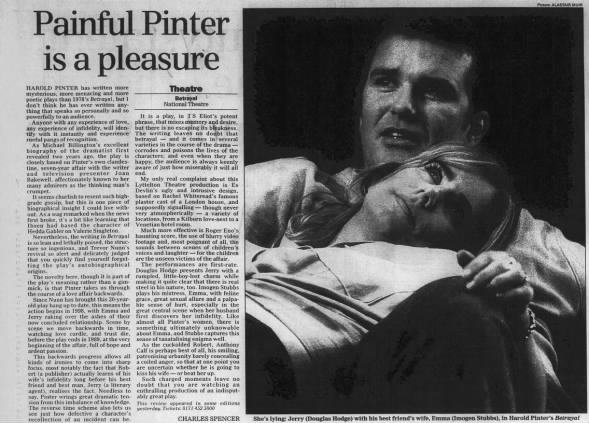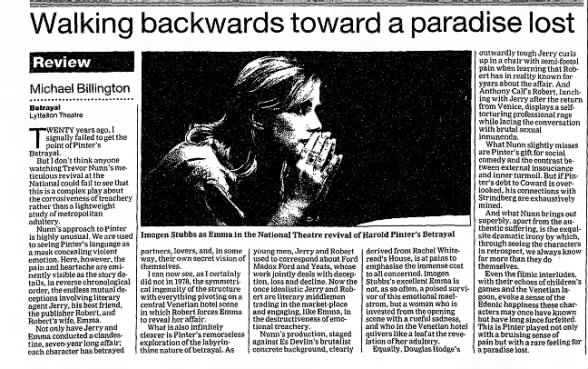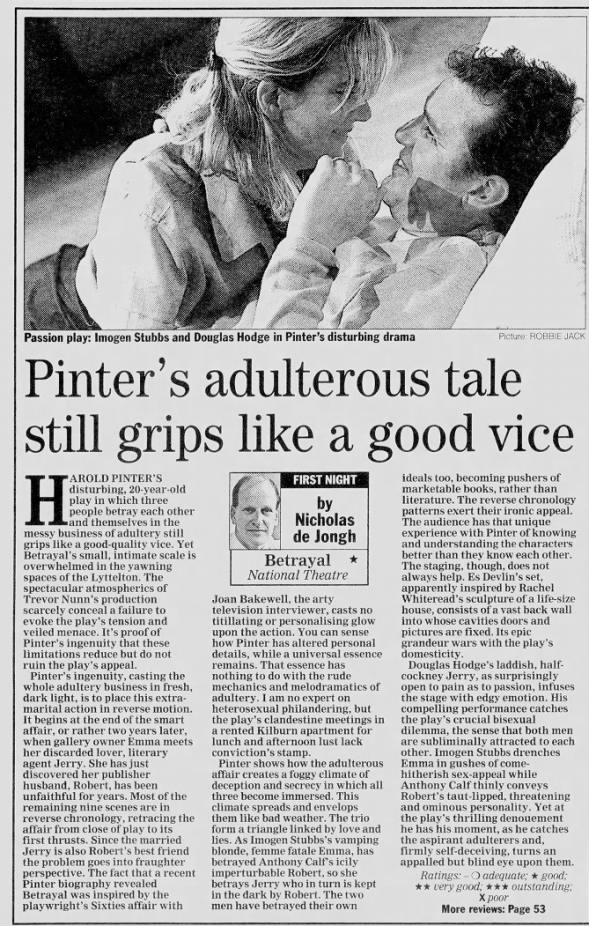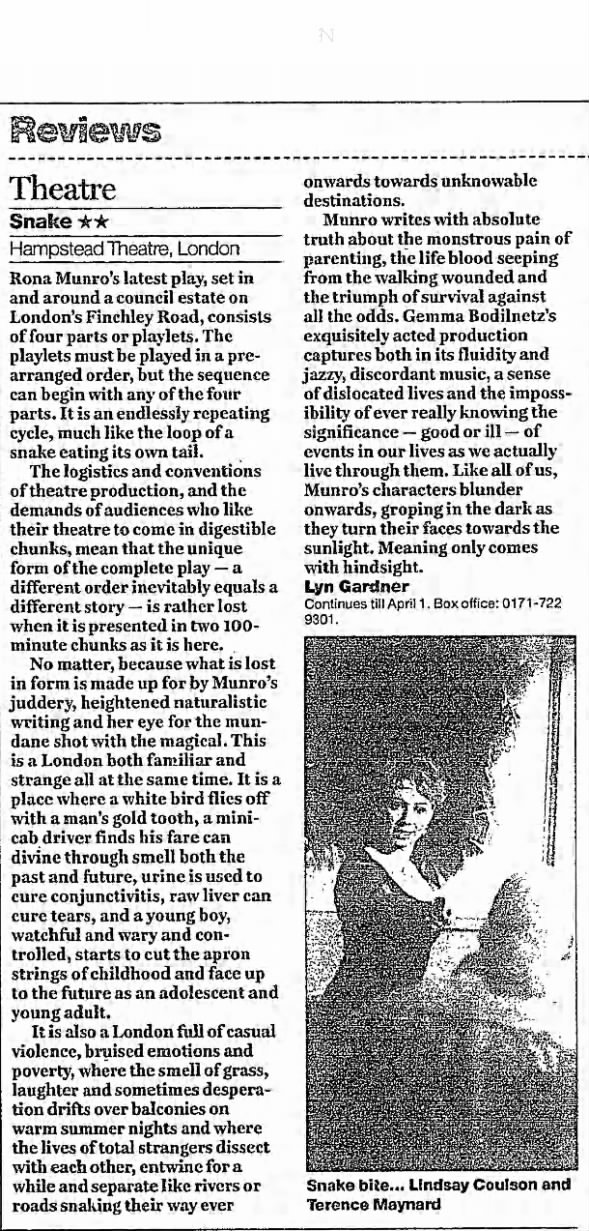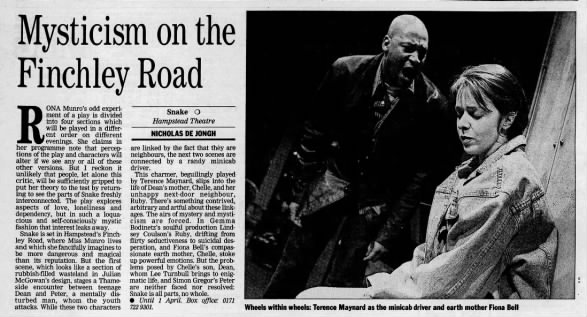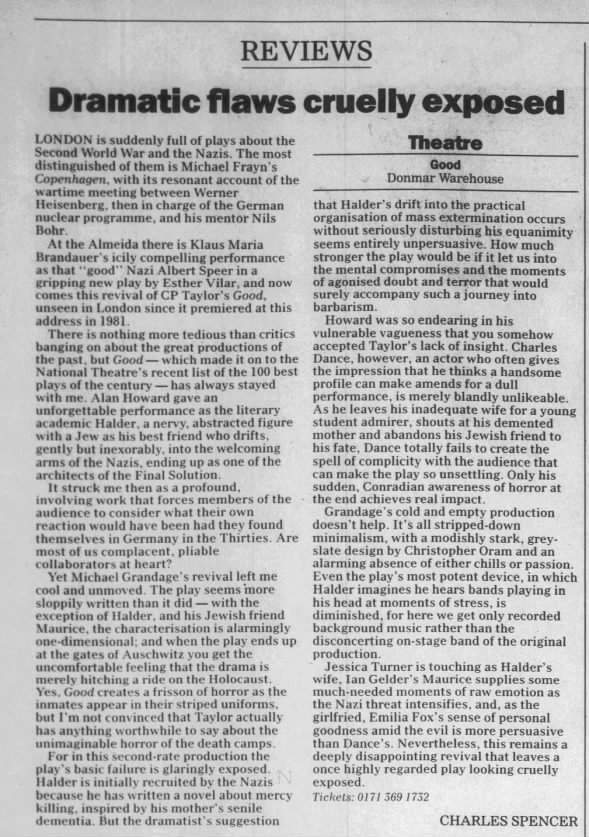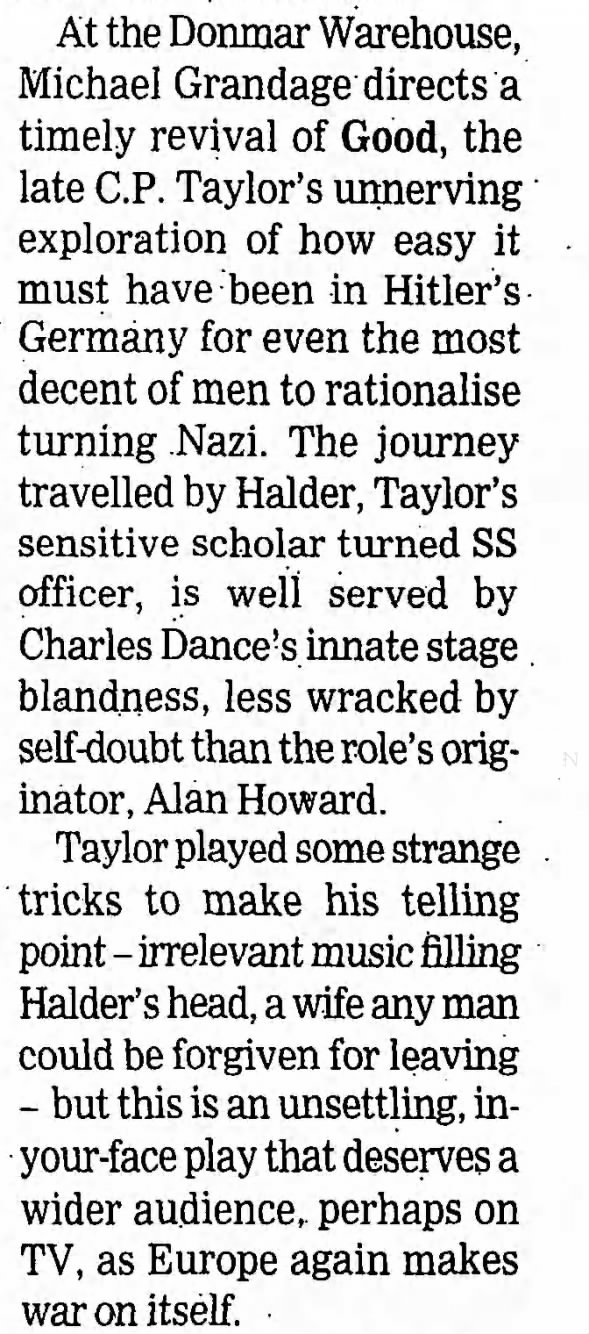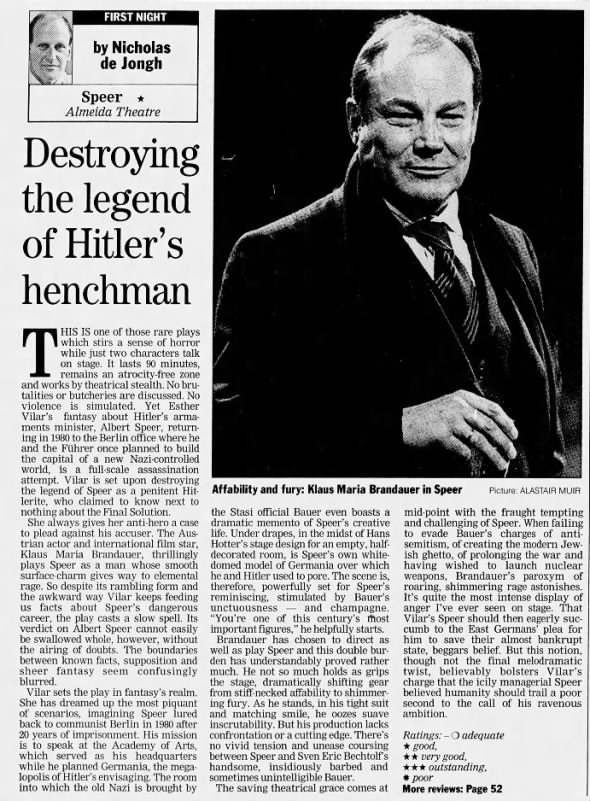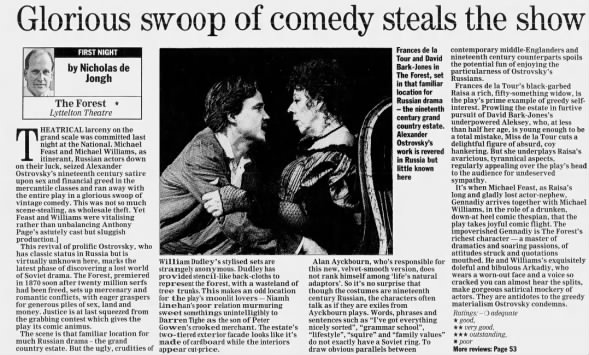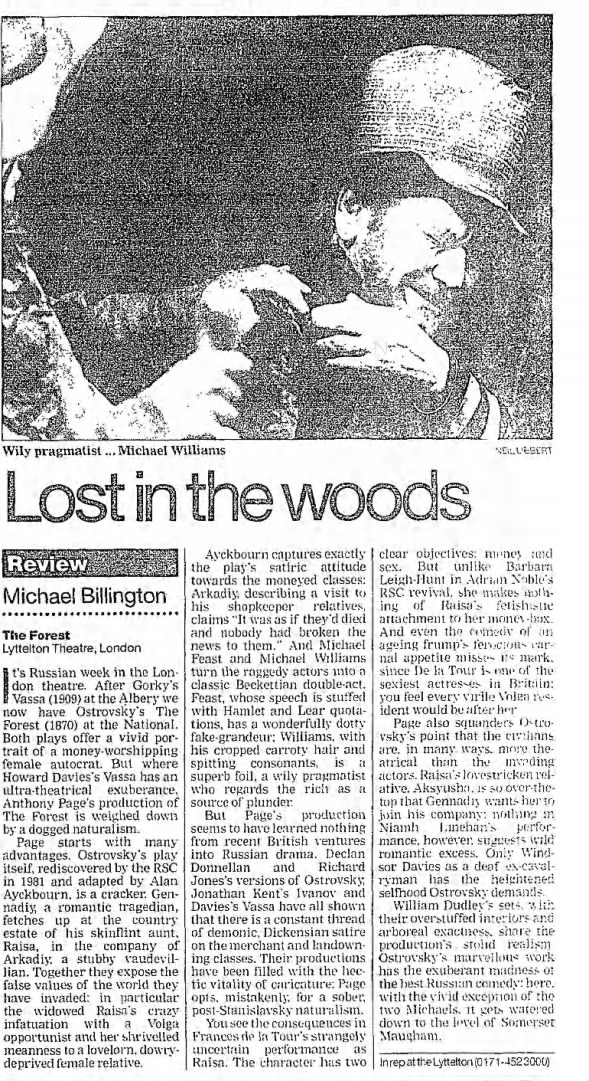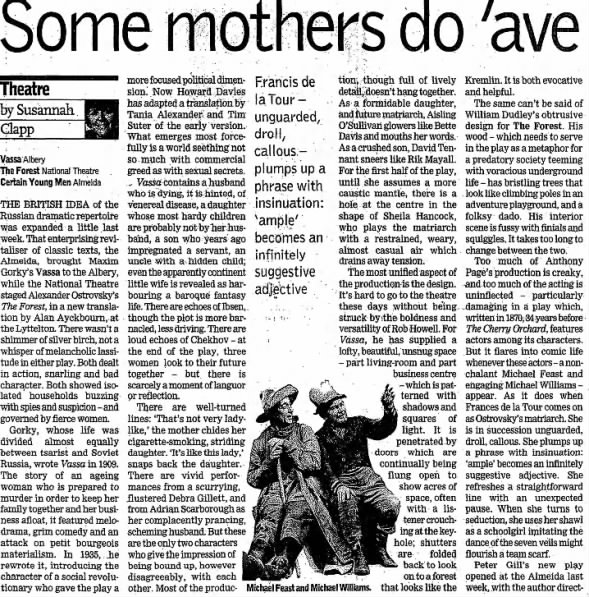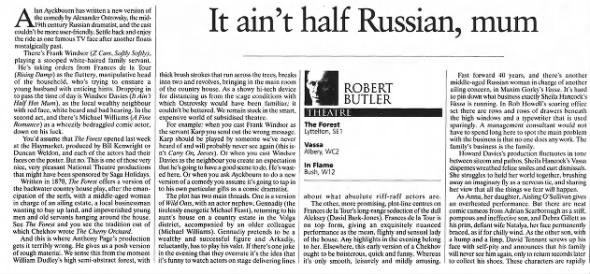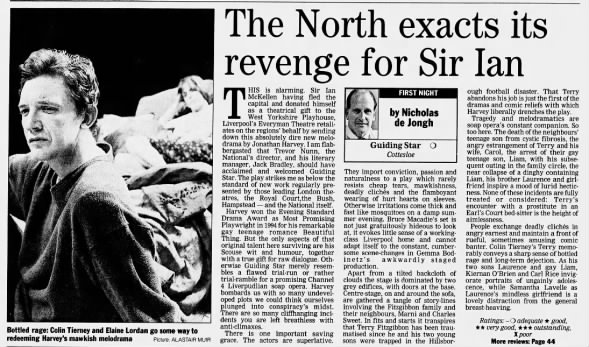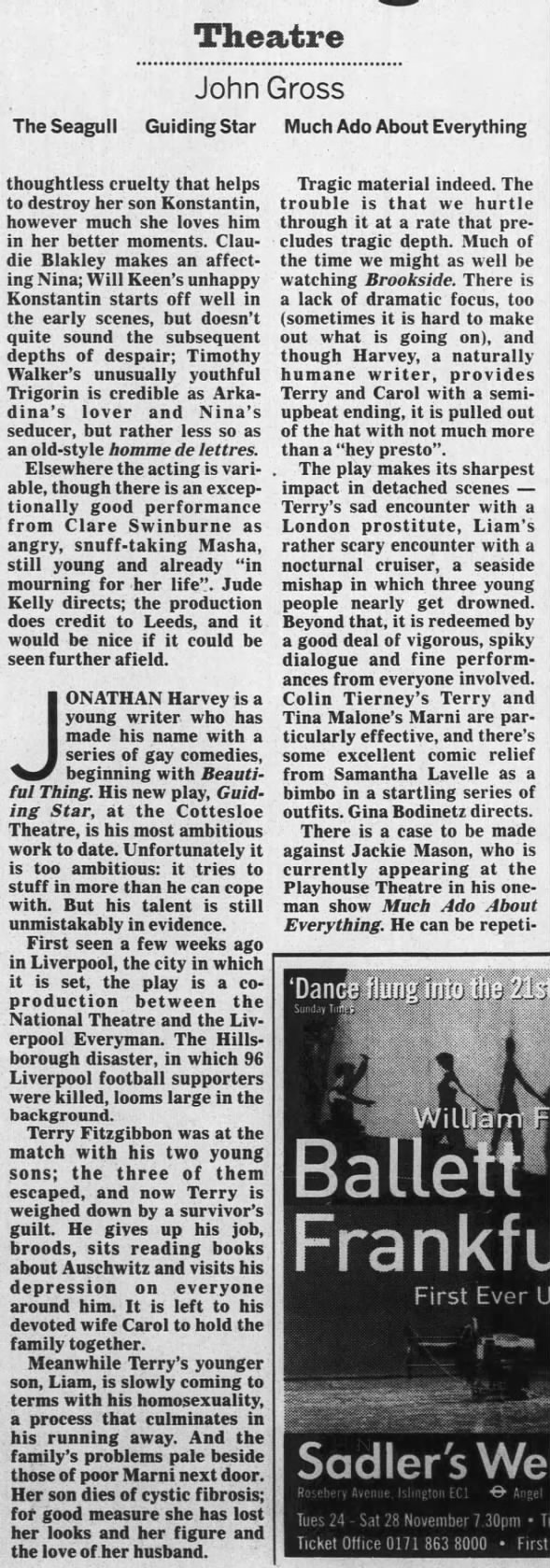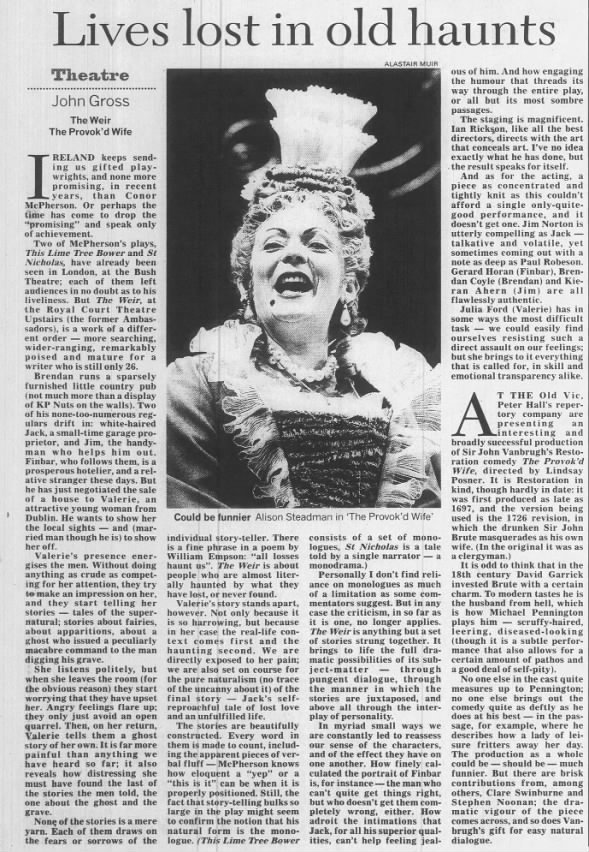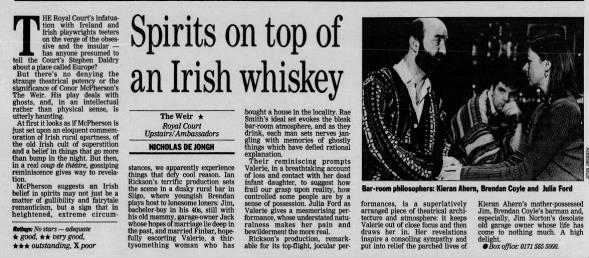A star-studded audience our night: me, Janie, Elvis Costello…
…we didn’t/don’t normally go to celebrity gala preview evenings for productions. Indeed, I think we ended up at this one by accident.
If I remember correctly, Janie booked this one on an early priority booking as she was a member of the Almeida Theatre, which was responsible for (or at least heavily involved with) this production. We tend to like and book previews, because they are usually low key and precede the hullabaloo of press nights and the like. For some reason this one seemed to be different.
We got to the Albery and our seats in good time. Then someone in the row behind me taped my shoulder and said “hello” as he was going past towards his seat. It was Elvis Costello, whom I had got to know reasonably well in the 1990s at Lambton Place Health Club (now BodyWorksWest).
In fact, for several years at Lambton Place, I was aware of this friendly fellow who was obviously in the music business, as indeed were many members at Lambton’s. I had not recognised him as Elvis Costello, despite my having several of his albums and having seen him live several times in the 1980s. On one occasion, a few years before The Albery, he and I were chatting in the steam room and I asked him what he did. He said that he used to be in a band called Elvis Costello and the Attractions. “Oh yes”, I said “I have several of your albums and saw the band live more than once. Do you mind telling me your name?” He told me, and clearly found my embarrassment at my gaff funny.

Anyway, roll the clock to April 1999 again. We were still on “chat quite regularly at the health club” terms, hence Elvis Costello tapping me on the shoulder, saying hello and stopping for a brief chat as he was going through to his seat.
“Who was that?” asked Janie after he and his Mrs had moved on. “Elvis Costello”, I said, quietly and matter-of-factly I thought, but my words caused a flurry among a group of celebrity-spotters in the row in front of us, who proceeded to keep turning around at regular intervals, looking at Elvis Costello and quizzically looking at me and Janie whom, I suppose, they now suspected of being celebrities worth spotting in our own right. I found this more amusing than Janie did.
Unfortunately, the pre-show hullabaloo was probably the most entertaining aspect of the evening from my point of view. I didn’t much like the play and found Cate Blanchett’s character Susan incredibly irritating.
Not as good as we had hoped it would be
…was my log comment, so I am pretty sure Janie felt the same way.
It was all very well produced and had a tip-top cast under Jonathan Kent, but that couldn’t rescue the evening for us. Here’s a link to the Theatricalia entry.
Paul Taylor in The Independent shared our doubts about this play/production, although saying that he would sooner spend three weeks stuck in a lift with Hedda Gabler than have a drink with Blanchett’s character Susan is harsher than I could have been:
 Taylor Independent Plenty 28 Apr 1999, Wed The Independent (London, Greater London, England) Newspapers.com
Taylor Independent Plenty 28 Apr 1999, Wed The Independent (London, Greater London, England) Newspapers.com
Charles Spencer in The Telegraph hated the play but fell in love with Cate Blanchett
 Spencer Telegraph Plenty 29 Apr 1999, Thu The Daily Telegraph (London, Greater London, England) Newspapers.com
Spencer Telegraph Plenty 29 Apr 1999, Thu The Daily Telegraph (London, Greater London, England) Newspapers.com
We had posh nosh at The Beaumont afterwards. I think it had recently had a makeover at that time – it will have had a makeover or two since (he says, writing 25 years after the event).



